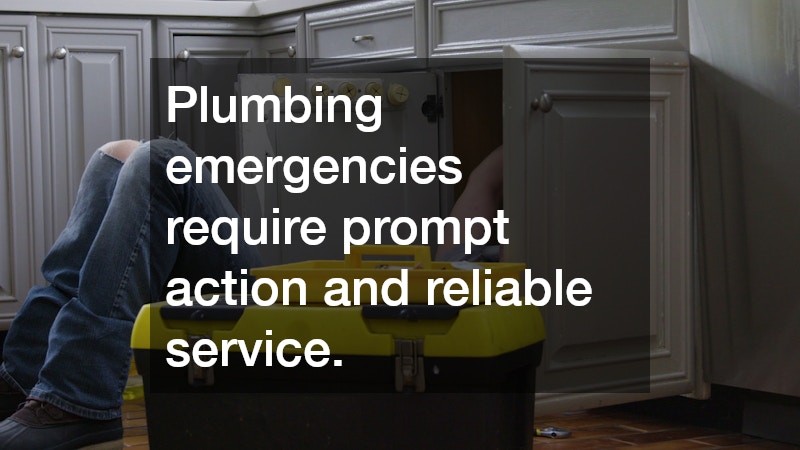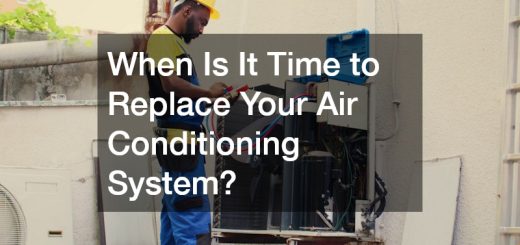Emergency Plumbers When You Need One and What to Expect
Not all plumbing problems can wait until morning, which is why many homeowners eventually find themselves needing emergency plumbers. Whether it’s a burst pipe in the middle of the night or a blocked toilet on a public holiday, plumbing emergencies often arrive without warning and require fast, professional action to prevent further damage to your home.
Knowing when to call an emergency plumber and what to expect once they arrive can make a stressful situation more manageable. It also helps ensure you’re not caught off guard by unexpected costs or delays when time is of the essence.
Recognising a Plumbing Emergency
It can be hard to decide what counts as a true emergency, especially if the issue is inconvenient but not immediately dangerous. Generally, anything that risks flooding, water damage or poses a health hazard should be treated as urgent. This includes burst pipes, overflowing toilets, sewer backups and major leaks that can’t be stopped with a temporary shut-off.
In colder parts of Australia, frozen pipes may also require emergency attention if they threaten to burst or restrict the water supply. Gas leaks are another critical situation where licensed plumbers must be contacted immediately, even outside regular business hours. These types of emergencies can have serious safety implications and should never be ignored or delayed.
On the other hand, minor drips or slow drains can usually wait until normal business hours without causing major harm. If you’re unsure, many plumbing services offer 24-hour hotlines where you can explain the situation and get guidance on whether immediate help is needed.
What to Expect from an Emergency Plumber
Emergency plumbing services operate around the clock, including weekends and public holidays. When you call, you can usually expect a fast response time, especially if the issue is causing active damage or is considered a threat to health and safety.
A qualified emergency plumber will arrive with the tools and parts necessary to contain or resolve most urgent issues on the spot. In some cases, such as when excavation or specialist equipment is needed, they may need to perform a temporary fix to stabilise the situation before returning to complete the job during normal hours.
Clear communication is a key part of the process. A reputable plumber will explain the nature of the problem, outline your options and provide a rough cost estimate before beginning work. While emergency callouts often come at a higher rate than standard services, understanding the fee structure upfront helps avoid surprises on the invoice.
How to Minimise Damage While Waiting
If you’re dealing with a burst pipe or major leak, the first step is to shut off the water at the main valve. Most homes in Australia have a stop tap located at the front of the property. Turning this off will stop the flow of water and prevent further flooding or damage until the plumber arrives.
For leaking hot water systems, turning off the electricity or gas supply is also important to reduce the risk of electrical hazards or pressure buildup. Towels, buckets or containers can help manage small leaks, while moving furniture or electronics out of the affected area can prevent secondary damage.
It’s also helpful to take photos of the problem before the plumber starts repairs. This documentation can assist with insurance claims if you need to report damage to your provider later.
Choosing the Right Plumber in an Emergency
Even in an urgent situation, it’s still important to choose licensed and insured plumbers who are qualified to handle emergency work. Look for businesses with clear contact information, upfront pricing policies and positive reviews from past customers.
Plumbers with experience in emergency response will know how to work efficiently under pressure and prioritise safety. They’ll also carry the appropriate equipment to deal with a variety of issues on short notice. If you already have a trusted plumber, check whether they offer emergency services. Keeping their contact details handy can save precious time when a crisis hits.
Some large plumbing companies operate 24-hour teams, while others may rotate on-call staff. Either way, checking credentials and asking for licence numbers is always a smart move, especially when work is being carried out quickly.
Prevention and Maintenance
While not every plumbing emergency can be avoided, regular maintenance goes a long way in reducing the risk. Annual inspections, checking for signs of leaks, clearing blocked drains and servicing hot water systems are all smart preventative measures.
Establishing a relationship with reliable plumbers before an emergency arises can also make a difference. They’ll be familiar with your home’s plumbing system and may be able to spot potential issues before they escalate into costly repairs.
Knowing the signs of early trouble, such as discoloured water, strange odours, unusual sounds or rising water bills, can help you act early. Many homeowners discover too late that a small leak has been worsening for months, eventually resulting in a major failure.
Emergency plumbing problems are never convenient, but they’re something most homeowners will face at some point. Having a plan in place and knowing when to call professional plumbers can help you respond quickly and minimise the impact of the situation.
From burst pipes to blocked drains, plumbing emergencies require prompt action and reliable service. By staying informed and working with licensed professionals, you can protect your home, save money and restore peace of mind as quickly as possible.


